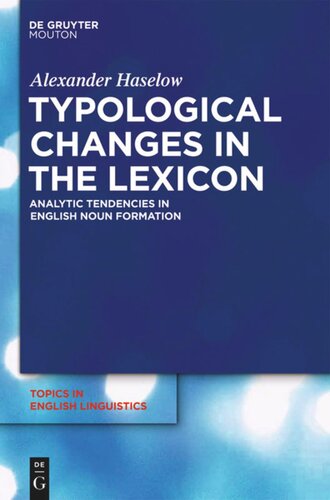

Most ebook files are in PDF format, so you can easily read them using various software such as Foxit Reader or directly on the Google Chrome browser.
Some ebook files are released by publishers in other formats such as .awz, .mobi, .epub, .fb2, etc. You may need to install specific software to read these formats on mobile/PC, such as Calibre.
Please read the tutorial at this link: https://ebookbell.com/faq
We offer FREE conversion to the popular formats you request; however, this may take some time. Therefore, right after payment, please email us, and we will try to provide the service as quickly as possible.
For some exceptional file formats or broken links (if any), please refrain from opening any disputes. Instead, email us first, and we will try to assist within a maximum of 6 hours.
EbookBell Team

4.8
104 reviewsThis is the first study of the typological change of English from a synthetic towards an analytic language that focuses exclusively on the lexical domain of the language. It presents an innovative approach to linguistic typology by focusing on the different encoding techniques used in the lexicon, providing a theoretical framework for the description of structural types (synthetic, analytic) and encoding techniques (fusional, isolating, agglutinative, incorporating) found in the lexicon of a language.
It is argued that, in the case of English, the change from syntheticity to analyticity did not only affect its inflectional system and the encoding of grammatical information, but also the derivational component. Based on a cognitive approach to derivation, the book provides empirical evidence for a considerable decline in the use of synthetic structures and a trend towards higher degrees of analyticity in a specific lexical domain of English, the formation of nouns by means of derivation. The full extent of this change surfaced during the transition from Old English to early Middle English, but it was later partly reversed though influence from French. The typological shift was thus the result of a global structural reorganization of the language that resulted in a fundamental change of the structure of words.
The book also presents a comprehensive account of the historical development of nominal derivation from the beginnings of Old English until the end of the early Middle English period. Based on empirical data from written sources the study documents the frequency of use of all Germanic-based derivational morphemes for nominalizations over different subperiods and discusses their origin as well as important changes of their semantic and morphological properties.